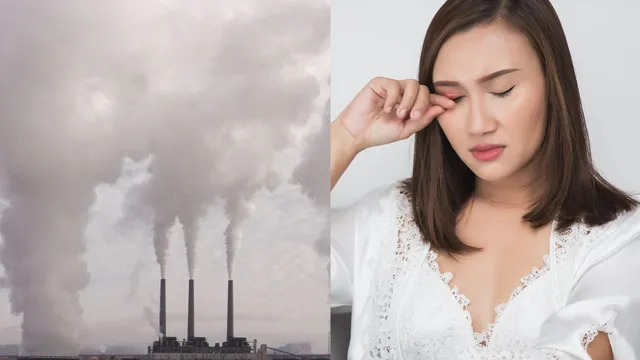- By Iram Hussain
- Thu, 02 Jan 2025 05:21 PM (IST)
- Source:JND
Cataracts are commonly associated with age and they are the foremost source of blindness globally. While a genetic tendency and age likely remain in the broad category of the onset risk factors, the role of pollution as an external asset in increasing the speed of growth of cataracts is gaining relevance. More recent studies are indicating that the increasing rates of pollution over the years is a cause for the rapid increase of early onset cataracts which is a problem that requires urgent attention and focus.
In a conversation with Jagran English, Dr Neeraj Sanduja, MBBS, MS, Ophthalmologist, and Eye Surgeon, Viaan Eye and Retina Centre explained the role of pollution in being a catalyst for early cataracts.
Cataracts are caused when the lens of the eye which is naturally clear gets opaque which ultimately results in getting distorted images. The majority of cataracts occur in people aged 60 and above, but recently, more and more young individuals have begun to get this disease. The age group has shifted and raised eyebrows for many resulting in the research of a number of external factors such as pollution, exposure to work done with UV radiation and the use of toxic products.
The Pollution-Cataract Connection
1. Particulate Matter (PM)- One of the elements that have caused disruption to the balance of tissues in the eye are PM2.5 and PM10’s fine particulates. Studies have shown the harmful link of these pollutants to oxidative stress which in turn dilates blood vessels, intensifies the heart rate caused by agitations and inflammation and as a result accelerates ageing of the eye lens. Chronic exposure to high levels of PM has been proven to aggravate the clouding of the lens thereby increasing the risk of developing cataract.
2. Ultraviolet Radiation (UV)- UV exposure is worsened by pollution on two fronts. Firstly, the particulate matter contained in the polluted air reflects and refracts the UV rays thereby increasing their impact on the eyes. Secondly, the pollutants responsible for global warming such as chlorofluorocarbons (CFCs) lead to the thinning ozone layer which depletes our natural defense against harmful UV rays.
3. Toxic Chemicals- Nitric coarser toxins, sulphur, lead oxide, hydrogen toxins and carbon dioxide are all airborne gases which according to experts can cause damage and irritation to ocular tissues. These elements are responsible for oxidative stress and inflammation and are consequences that hasten the clouding of the lens.
Urbanisation And Lifestyle Factors
As countries become economically stronger, there is an increase in pollution levels courtesy of urbanisation and industrialization, even developing nations are not spared. Living in urban centres places one at a higher risk of suffering from cataracts as there is constant exposure to vehicle fuel emissions, industrial pollution and dust from building sites. Furthermore, the sedentary nature of one’s daily activities including fixed time periods before screens coupled with the outdoors or in a room exposes one to think that they are safe from UV rays which is not the case.
Prevention And Awareness
There are several ways to protect your eyes from such effects-
Wear Protective Eyewear: Investing in sunglasses that are UV-blocking can prove to be a solution for people who are exposed to sunlight for prolonged periods.
Protect The Eyes: Rinse the eyes out and do not rub them to prevent irritation and minimize exposure to dirt.
Follow-up On Eye Health Issues: Detecting cataracts at an early stage can prevent more serious eye problems.
Improve Outer Environment: Deregulate and incorporate measures like outdoor plants and portable air filter machinery to reduce indoor toxins.
Policy-Level Interventions: Governments and organisations have a public health responsibility to combat pollution. This public health challenge is hard-hitting due to inadequate industrial emission policies, pollution and eye health nexus campaigns and clean energy initiatives.
ALSO READ: What Causes Blurry Vision During Pregnancy? Know From Expert
Diet for 20/20 Vision: Doctor Explains Importance Of Diet And Recommends Foods For Healthy Vision

